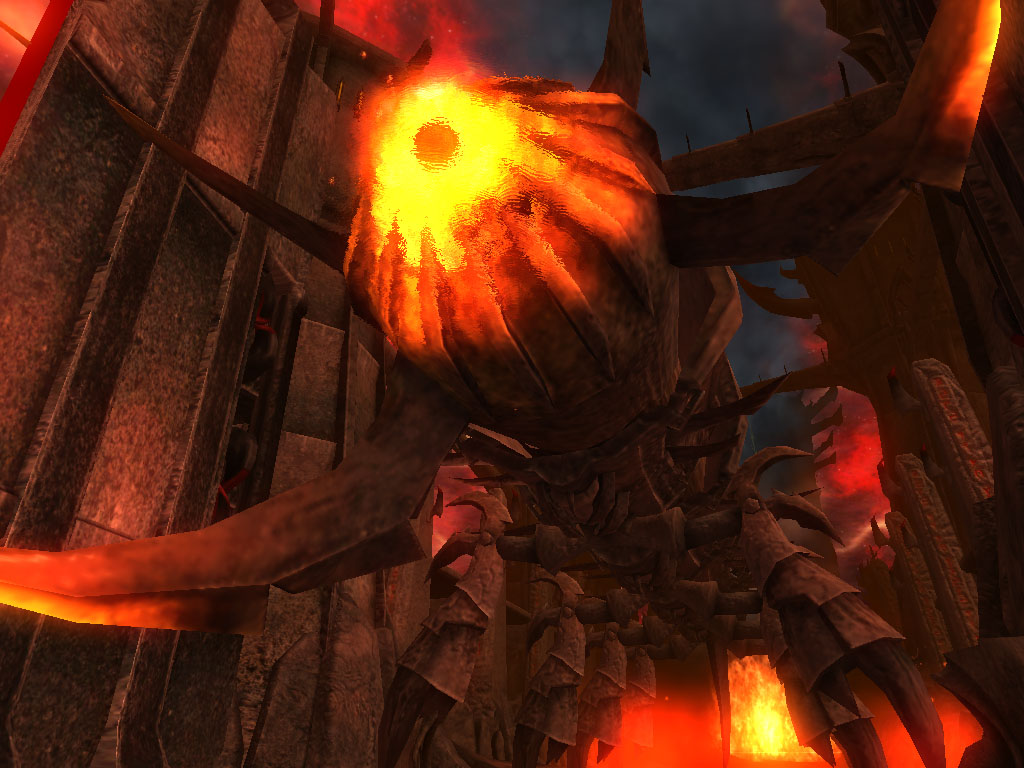Someone told me I was insane if I thought America was a fascist state. I politely asked them for some reading on Fascism so I could better understand what it is. Crickets.
asking libs for reading material
check this Wikipedia page and this msnbc video, you’re welcome!
A liberal would never say “you’re welcome”. They cannot speak with anything but the utmost contempt and utter condescension.
if you read it in an iamverysmart/sarcastic smug tone it works
this the guardian article says china bad!
Then the book suggestions are always Harry Potter and Live Love Laugh, since ‘you never read a book that wasn’t assigned to you’ and also to ‘go to college’. I can hear it in my memory like that convo happened just in January.
you never read a book that wasn’t assigned to you
Mindmelting mindset. Frictionless sphere inside of a vacuum brain.
I’ve found being multiple minorities tends to mask off people to varying degrees, in a way I’m blessed with a gift, put me in a room and reactionary brain starts melting.
“How to Win Friends and Influence People” and “Rich Dad Poor Dad”
The most insufferable trust fund yuppies read Live, Love, Laugh and turn it into their religion
There’s a book? I thought it was just vapid, inane kitsch people put on the wall.
They’ll throw the Harry plopper box set at you
No really, this is a good idea to use against libs and chuds. Libs will mention Harry Potter, and CHUDs can’t even read at all, so it all works out.
Honestly a hilarious bit
Voldemort is fascism
I feel like for there to be an answer to that question you have to ask yourself is fascism when the methods of a nations brutality are developing or when that brutality is brought home? In my opinion it is when the methods are developing.
I need to make a bot to post this any time fascism gets mentioned.
The western left’s use of the term fascism, is borderline white-supremacist at this point. Fascism was a form of colonialism that died by the 1940s, and is only allowed to be demonized in public discourse, because it was a form of colonialism directed also against white europeans. It was defeated, and Germany / Italy / Japan reverted to the more stable form of government for colonialism (practiced by the US, UK, France, the Netherlands, Australia, etc): bourgeois parliamentarism.
British, european, and now US colonizers were doing the exact same thing, and killing far more people for hundreds of years in the global south, yet you don’t hear ppl scared of their countries potentially “becoming british colonialists.” They haven’t changed, and their wealth is still propped up by surplus value theft from the super-exploitation of hundreds of millions of low-paid global south proletarians.
This is why you have new leftists terrified that the UK or US or europe “might turn fascist!!”, betraying that the atrocities propagated by those empires against the global south was and is completely acceptable.
betraying that the atrocities propagated by those empires against the global south was and is completely acceptable.
that feels like a stretch. radlibs are perfectly capable of condemning the past crimes of colonialism. they just think it’s over and done and that nobody needs to pay reparations.
They think that nobody needs to pay reparation, because they think that everything was legally done. For one example, that’s the point of all those magical treaties they coerced signatures for, to legalize their genocide and insulate from current and future accusations of wrong doing. To liberals, the utmost important thing is that something is legal. Morality be damned.
Well…


The US has never been fascist because American Capital has never collectively felt threatened enough to the point of throwing away the pretenses of liberal democracy in favor of a class collaborationist mimicry of “socialism” under a direct dictatorship of the bourgeoisie without the smoke and mirrors. The closest they got to doing that was in between the Great Depression and FDR’s successful implementation of the New Deal. In the course of the latter, some bougies felt so pissy about relinquishing some power and concessions to the proles under the ND’s progressive program that they tried to bring about fascism themselves. This is not to say that not being fascist doesn’t mean you can’t work with and enable fascists, as most of 20th century to the present shows.
I’m against labeling the US as fascist because not only is it anachronistic but it also lets liberal “democracies” off the hook given how awful they’ve historically been. Just like I wouldn’t label Ancien France as “fascist” either. Fundamentally, liberalism, fascism and “traditionalism” are all just tools in the box for Bourgeois rule. It has nothing to do with the supposed “sanctity” of the system holding back the tide of fascism as liberals see it.
Fascism is fundamentally characterized by 1) mass privatization and 2) vicious anti-communism.
The fascist counter-revolution first saw its success in 1920 Italy when the post-WWI nationalized economy gave rise to a strong socialist movement that nearly overthrew the bourgeois government.
WWI ended laissez faire capitalism when it found itself unable to ramp up war production and suffered from inefficient output, and this was a disadvantaged position during inter-imperialist warfare. Instead, state run capitalism became the norm as the imperialist powers were dragged into a protracted Great War during which vast resources and war production could only possibly be organized efficiently with state intervention. Such dramatic changes shifted the leverage to the working class, whom the ruling class became dependent on to win the war. The consequence of this was the explosion of labor and socialist movements throughout Europe, and culminated in the Bolshevik Revolution in Russia that subsequently ended WWI.
As they found themselves unable to resist against the tidal wave of workers movement, inspired by the success of the Bolshevik Revolution in Europe, the liberal capitalist class turned to fascism with the hopes that such extreme brutality could crush the seemingly unstoppable socialist movements. They succeeded, first in Italy in 1922, and then subsequently in Germany in the early 1930s.
One of the first signs of a fascist regime was the mass privatization of the previously nationalized industries:
Benito Mussolini became Prime Minister in October 1922. Nazis rose to power in 1933 in Germany. Mussolini convened a meeting of his cabinet and immediately decided to privatize all the public enterprises. On December 3, 1922, they passed a law where they promised to reduce the size and function of the government, reform tax laws and also reduce spending. This was followed by mass privatization. He privatized the post office, railroads, telephone companies, and even the state life insurance companies. Afterward, the two firms that had lobbied the hardest: Assicurazioni Generali (AG) and Adriatica di Sicurtà (AS), became a de-facto oligopoly. They became for-profit enterprises. The premiums increased, and poor people had their coverage removed.
After the trains were privatized, the services became slower and more irregular, contrary to the popular myth.
In January 1923, Mussolini eliminated rent-control laws. His reasoning ought to be familiar since that is the same reasoning used in many contemporary editorials against rent control laws. He claimed rent control laws prevent landlords from building new housing. When tenants protested, he eliminated tenants’ unions. As a result, rent prices increased wildly in Rome, and many families became homeless. Some went to live in caves.
Once more, these policies allowed landlords to increase their profit and holdings while they severely hurt the poor.
To remove “government waste,” Mussolini removed the federal government from remote areas in Italy. This meant that rural farmers, peasants, and workers no longer had the protection of the federal government against abuse from agribusiness. Instead, they were entirely under the mercy of big businesses.
The austere economic policies in fascist Italy were studied closely by the British marginalists, who were the precursors to the neoclassical economists that eventually found the Chicago school and brought neoliberalism to the forefront of economics.
As such, there is a direct connection where fascism and their austerity economics directly contributed to the development of neoliberalism. Combined with a vicious anti-labor and anti-communist thrust, the models of fascism being replicated in Indonesia in the 1960s, Chile in the 1970s and Russia in the 1990s (Russia being a special case because they didn’t go all the way, as Putin re-nationalized a lot of the key industries since in the early 2000s) under the guise of neoliberalism, during which hundreds of thousands if not millions of communists and left wing activists were brutally murdered.
Within Europe itself, mass privatization began in the UK as early as the 1960s, and began to become part of the European center left/social democratic platforms in the 1970s. Interestingly, most historical account of privatization in Europe conveniently left out the earliest forms of mass privatization that took place under the fascist regimes in Italy and Germany in the 1920s and 1930s.
In other words, neoliberalism is simply fascism rebranded. By all accounts, the neoliberal model of the United States is as close as you can get to fascism - what is missing here is that violence against communists, labor activists, minorities aren’t becoming prevalent yet due to the relatively high living standards of the US being sustained by its foreign imperialist policies.
But don’t let that fool you, just like in the 1920s, they really can turn to fascism in an instant when the situation becomes dire enough to call for it. It took no effort at all in convincing an entire class of liberals in Italy and Germany to support Mussolini and Hitler.
(Tenting my fingers and nodding politely as I let you finish before getting up and pointing at you and screaming “Neeeeeeeeeeeeerd”)
omg same bestie
Also the US lacked a vast swath of veterans traumatized by WW1, and who’d be more than willing to dish violence to their fellow citizens
Lenin defined fascism as a Bonapartist movement that emerges when capitalism in decline, and American capitalism certainly hasn’t always been in decline, and it’s government can’t really be called Bonapartist in any sense.
Exactly. American ruling ideology has, for the most part, been overtly conservative and elitist even under its “progressive” eras, as opposed to the right wing populism that gives rise to fascism. Only thing that separated it from the old monarchies was that it put “entrepreneurs” as the rightful masters of society instead of aristocrats and royals.
It’s not like much has changed either since the mid-20th century. Even under the populistic overtures thrown out by everyone from Trump to Obama, there’s always the underlying assumption that the leaders of capital are the vanguard of political change. It’s arguably more present now than FDR’s time since a public program that doesn’t include a “partnership” with a dominant private corporate element is unthinkable in this day and age (“Obamacare” is a prime example).
I’m pretty sure he was referring to Napoleon III and the relation his faction had to the Paris Commune, not Napoleon the first. Obviously the Paris commune is a very different situation than what we’re facing in America, though Lenin and Engels have both commented on America. To note, Paris was under siege by the Prussians at the time and capitalist power began to dissolve in the city, giving rise to workers councils. To get America to those conditions would require an unthinkably incredible embargo of goods flowing into the country.
If we got to that point everyone on the planet would be vaporized before the day was out.
Yeah, if anything Lenin’s interpretation was mirrored most readily during the Spanish civil war.
and it’s government can’t really be called Bonapartist in any sense.
the structure of the government isn’t (for now) but there’s a decent chunk of people who want to elect a king once in a while and otherwise completely disengage from civic politics.

















